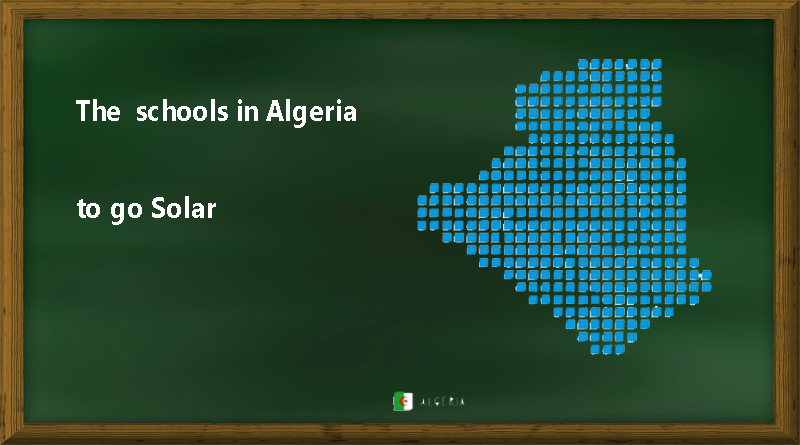

On account of its geographical location, the African nation of Algeria holds one of the highest solar potential in the world which is estimated at 13.9 TWh per year. And the country has been in the process of harnessing it since the launch of the ambitious Renewable Energy and Energy Efficiency Program which targeted 22,000 MW of power from renewable sources between 2011 and 2030.
And now, the North African oil rich nation which is ranked at number 10 for natural gas reserves in the world and the 3rd-largest supplier to Europe, will look to have its schools run on renewable energy. This has become particularly important for the African nation, depending as it does for 60% of its revenues from fossil fuel exports, a figure that has almost halved since peaking in 2014.
Algerian Minister of Interior, Local Authorities and National Planning, Noureddine Bedoui on Wednesday said, “The government is planning to equip all primary schools in the North African nation with renewable energy in the next three years.” Mr Bedoui made the statement during the inauguration of a school completely powered by solar energy in the province of Relizane, about 300 kilometres southwest of Algiers.
He further added, “The government seeks to provide primary schools countrywide with renewable energy equipment.”
In his speech, the Minister stressed on the need to rationalize energy consumption and stated that 500 primary schools nationwide were already equipped with solar energy. He further mentioned the government’s energy mission for 2030, through which the country aims to install about 22,000 MW of renewable power, which would be about eight times the level of natural gas consumption according to current standards.
Algeria’s renewable energy program is one of the most progressive in the MENA (Middle East and North African) region and the government is making all-out efforts to secure investments and reliable technology partners for ongoing and upcoming projects. However, due to lagging foreign investments, and subsequent decline in exports, the International Monetary Fund (IMF) marked the country’s economy may be at risk from lingering weakness in oil prices. The European Union last year, pledged to offer $42.7M in financial assistance to support the energy reform in Algeria.
1. The mandate for blending Compressed Biogas (CBG) with natural gas has come into effect…
Andhra Pradesh is striving towards greening its energy sector with quite some speed. In a…
With an objective to bolster India’s green energy goals, a Tripartite Agreement has been signed…
The Union MNRE Minister Pralhad Joshi launched the Green Hydrogen Certification Scheme of India (GHCI)…
India’s energy conglomerate Bharat Petroleum Corporation Limited (BPCL) has commissioned a 5MW green hydrogen plant…
In a historical development, the European Space Agency (ESA) has successfully launched its pioneering ‘Biomass’…